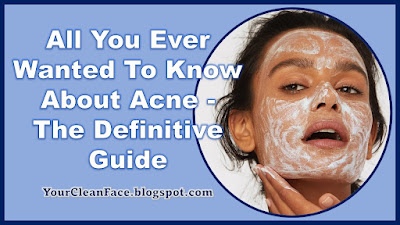Acne: Dispelling Myths and Understanding the Facts
For some individuals, acne serves as a symbolic gateway into adulthood, a
rite of passage accompanying the changes in the body. It is the most
prevalent skin condition globally, with spots, blackheads, and oily skin
often making a temporary appearance on almost everyone's face.
However, approximately 15% of people continue to struggle with persistent
or widespread acne that can lead to scarring. Unfortunately, teenagers are
often ill-informed about effective acne management, unaware that pharmacy
assistants and pharmacists can provide valuable assistance.
Are you truly knowledgeable about acne and its causes? Did you know that
there is no scientific evidence supporting a link between diet and acne? Are
you aware that not everyone outgrows acne, with 5% of women and 1% of men in
their 40s still grappling with this "teenage" problem?
Debunking Common Acne Myths
To embark on proper acne management, it is crucial to debunk prevalent myths:
1. Acne is caused by food.
Contrary to popular belief, scientific studies have failed to establish a
connection between diet and acne. In a trial conducted in the United States,
prisoners were enrolled to examine the direct impact of chocolate
consumption on sebaceous glands. The trial concluded that acne was not
influenced by chocolate consumption. Nonetheless, it is always advisable to
follow a healthy, balanced diet while assuring individuals that their food
choices do not directly affect their acne.
2. Acne is contagious.
Doctors have investigated the transmission of acne by extracting pus from
one spot and injecting it into unaffected skin. The results of this
experiment revealed that acne does not spread through such means.
3. Acne is caused by dirt.
While many people believe that acne is the result of surface dirt, it
actually stems from underlying activity beneath the skin. Surface dirt plays
only a minor role in the formation of acne. The black color in a blackhead,
for instance, is not caused by dirt; rather, it is the skin's natural
melanin that darkens upon exposure to air. Some individuals even claim that
excessive washing can cause acne, but this theory is difficult to
substantiate.
4. Acne is caused by hormonal imbalances.
Hormones undoubtedly play a significant role in the development of acne,
but it is important to avoid misconceptions about the body producing an
excess of hormones. A study conducted at a leading acne research center in
Leeds involved patients attending a clinic. Each patient provided a blood
sample, which was later analyzed for hormone levels. The results showed no
significant increase in male hormones among these patients, suggesting that
it is the skin's sensitivity to normal levels of male hormones that is
responsible for acne.
5. Everyone eventually outgrows acne.
Typically, acne follows a four to eight-year timeline, from its onset to
resolution. If one develops acne at the age of 12, it is expected to resolve
between the ages of 16 and 20. The average age range for acne is 14 to 22.
However, it is important to note that acne can persist into adulthood, with
8% of acne sufferers being over 40 years old. While it is rare to experience
acne throughout one's entire life, some individuals do not outgrow it.
Research conducted at Leeds University suggests that, on average, acne lasts
for eight years.
6. Acne and spots are not the same.
Many people attempt to differentiate between acne and spots. In reality,
acne is the medical term used by doctors to describe spots. However,
individuals with occasional, mild spots would not be diagnosed with clinical
acne. Approximately 15% of all individuals with spots require further
medical intervention to treat their skin.
7. Stress causes acne.
Ordinary, day-to-day stress is not a significant contributing factor to
acne. Only extreme stressors such as divorce, exams, or the loss of a close
family member may trigger or worsen existing acne. However, such cases are
uncommon and typically respond well to standard acne treatments.
In conclusion, dispelling myths and understanding the facts about acne is
crucial for effective management. By debunking common misconceptions,
individuals can make informed decisions regarding their skincare and seek
appropriate treatment when necessary. Remember, acne is a common condition
that can be addressed with the right knowledge and guidance.
Discover the revolutionary holistic system for acne
by Mike Walden. Say goodbye to creams and tricks that don't work. I highly recommend it
for its honesty and straightforward approach. No more exaggerated claims or
false promises. Visit the website to learn more:
Click here -> [AcneNoMore.com]


















0 Comments